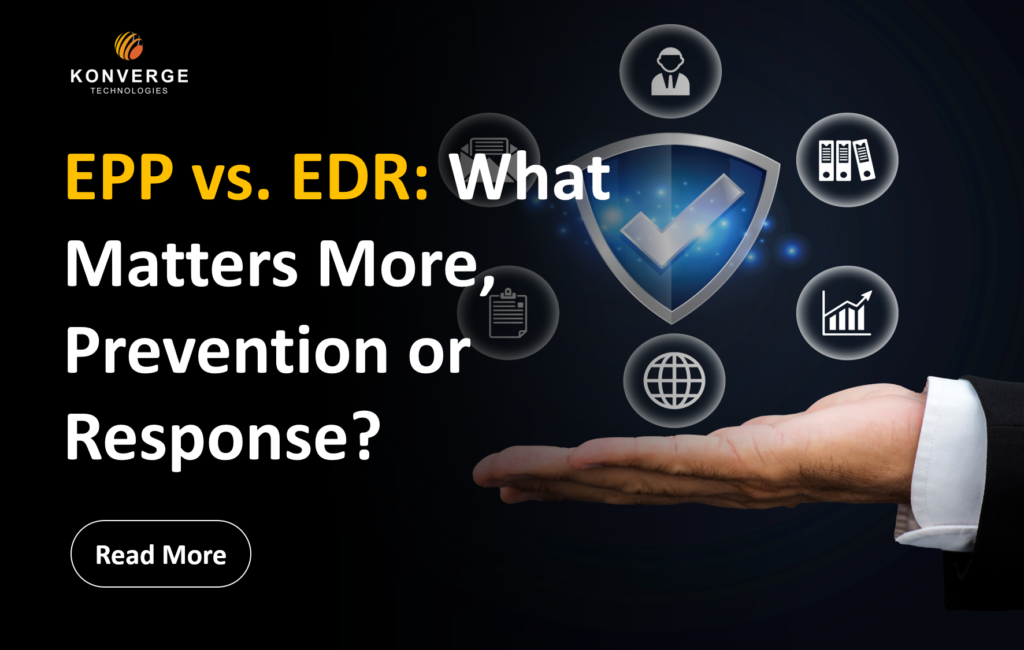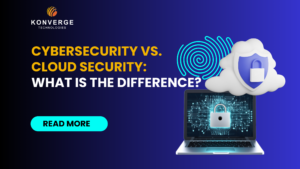
EPP vs. EDR: What Matters More, Prevention or Response?

Cybersecurity has become an increasingly crucial concern in today’s world. With the rising number of cyber attacks, it’s imperative for businesses and individuals to proactively protect themselves. Two widely adopted approaches to cybersecurity are Endpoint Protection Platform (EPP) and Endpoint Detection and Response (EDR). In this blog, we will delve into the intriguing realm of EPP and EDR, uncovering their distinctions and determining which holds greater significance. By the end, you’ll gain insights into both strategies and understand which one deserves your utmost attention.
What is EPP?
Endpoint Protection Platform, also known as EPP, is a security solution that is designed to protect endpoints such as laptops, desktops, and mobile devices. EPP software typically includes a range of security features, such as anti-virus, anti-malware, and firewall protection. EPP is designed to prevent cyber attacks from taking place in the first place, providing a layer of security that helps to keep your endpoints safe from known and unknown threats.
What is EDR?
Endpoint Detection and Response, also known as EDR, is another security solution that is designed to protect endpoints. However, EDR is different from EPP in that it focuses on detecting and responding to cyber attacks, rather than preventing them. EDR software uses advanced techniques such as behavioral analysis and machine learning to detect suspicious activity on endpoints, helping to identify potential threats before they can cause damage.
What’s the difference?
The primary difference between EPP and EDR is their focus. EPP is designed to prevent cyber attacks from taking place, while EDR is designed to detect and respond to them. EPP software typically includes a range of security features that are designed to keep endpoints safe, while EDR software uses advanced techniques to identify potential threats and respond to them quickly.
Endpoint Protection Platform (EPP):
- Focuses on prevention: EPP software is primarily designed to prevent cyber attacks from happening in the first place.
- Security features: EPP software includes a range of security features, such as anti-virus, anti-malware, and firewall protection, to keep endpoints safe from known and unknown threats.
- Signature-based detection: EPP software typically uses signature-based detection to identify known threats and block them before they can cause damage.
- Proactive monitoring: EPP software proactively monitors and analyzes endpoint activity to identify potential security risks and take action before an attack occurs.
Endpoint Detection and Response (EDR):
- Focuses on detection and response: EDR software is designed to detect and respond to cyber attacks, rather than preventing them from happening.
- Advanced techniques: EDR software uses advanced techniques such as behavioral analysis and machine learning to identify potential threats and respond to them quickly.
- Real-time threat monitoring: EDR software provides real-time threat monitoring and incident response capabilities, allowing organizations to respond to security incidents quickly and effectively.
- Detailed information: EDR software helps organizations respond to security incidents by providing detailed information about the attack and the affected endpoints, allowing for a more effective response.
Overall, while both EPP and EDR are critical components of a comprehensive cybersecurity strategy, they have different focuses and capabilities. EPP is primarily focused on prevention, while EDR is focused on detection and response. By understanding the differences between these two approaches, organizations can choose the best approach to meet their specific cybersecurity needs.
Which matters more?
When it comes to cybersecurity, both prevention and response are essential. However, which one matters more depends on your specific needs and requirements. If you operate in an industry that is highly targeted by cyber criminals, such as finance or healthcare, then prevention may be your top priority. In this case, you should prioritize EPP and ensure that you have the best possible security measures in place to prevent cyber attacks from taking place.
On the other hand, if you operate in an industry that is less targeted, or if you have already experienced a cyber attack, then response may be your top priority. In this case, you should prioritize EDR and ensure that you have the best possible security measures in place to detect and respond to potential threats quickly.
Conclusion
In conclusion, both EPP and EDR are essential components of a comprehensive cybersecurity strategy. EPP is designed to prevent cyber attacks from taking place, while EDR is designed to detect and respond to them. Which one matters more depends on your specific needs and requirements. If you operate in an industry that is highly targeted by cyber criminals, then prevention may be your top priority, and you should prioritize EPP. If you operate in an industry that is less targeted, or if you have already experienced a cyber attack, then response may be your top priority, and you should prioritize EDR.



